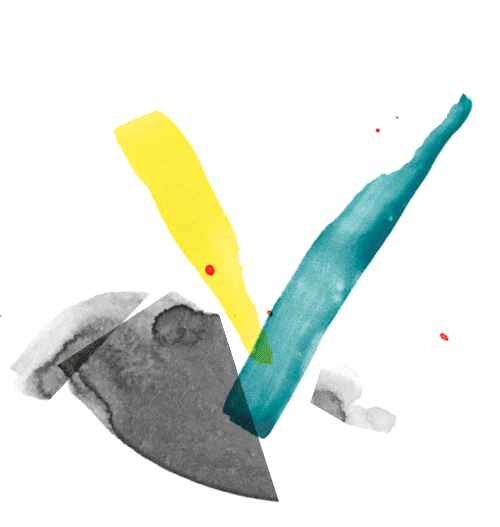

Sign up for our newsletters. You can change the settings or unsubscribe at any time.
Thank you for your subscription. We have sent you an e-mail with a confirmation link.


exp. 1
exp. 2
exp. 3

Carlos Motta
Venue: KW Institute for Contemporary Art
Carlos Motta
Born 1978 Bogotá, CO – lives and works in New York, US
The way sexual and gender politics interact with issues such as immigration, race, ethnicity, or neocolonialism are core themes of Carlos Motta’s projects, which use media ranging from installation to symposia, photos, and videos. One of his main concerns is the critique of hegemonic history through the creation of alternative archives and narratives that destabilize notions of gender—thereby creating a corpus of visibility and representation for non-normative subjectivities.
The three videos that constitute Motta’s work REQUIEM (2016) propose a queer reading for crucifixion, merit, goodness, and atonement—concepts traditionally affirmed by Christian institutions. The video Libera Me [Deliver Me, 2016], featuring a performance in which Ernesto Tomasini sings Gabriel Fauré’s Requiem, represents the singer as a dissident believer asking for forgiveness of his sins. In The End of Crucifixion, theologian Linn Marie Tonstad explains how Christianity has understood the divine gift of life as an economic system of debt and meritocracy, thus replicating the logic of patriarchy and capitalism. In Inverted World, Motta draws from the imagery of Caravaggio’s upside-down Crucifixion of St. Peter (1601). Blending this reference with bondage and sadomasochistic practices, Motta uses “inversion” as a trope to discuss new roles for the cuir/queer community within Christianity. In dialogue with the writings of Argentinian theologian Marcella Althaus-Reid, REQUIEM explores notions articulated in her Indecent Theology: Theological Perversions in Sex, Gender and Politics (2000): How can otherness be included in Christian doctrine? How can queer people live their faith inside the Church? Is it possible, in the words of Tonstad, to assert a new Christian ethic, in which God gives freely and difference is understood as “fundamental and irreducible”?
Lucrecia Palacios
New Look
Flávio de Carvalho
Performance
Invitation to the Species: Cecilia Vicuña
Tamaas / Cecilia Vicuña
Podcast
BLM KOREA ARTS
#BlackLivesMatter #BLMKoreaArts
Young-jun Tak
Statement
„Klaus Eckschen: Hörspiel“
Die Remise
Hörspiel
El primer nueva corónica y buen gobierno
Felipe Guamán Poma de Ayala
Chronicle
#fight4rojava
Graffiti
By using this website you agree to the use of cookies in accordance with our data privacy policy.

Carlos Motta
Venue: KW Institute for Contemporary Art
Carlos Motta
Born 1978 Bogotá, CO – lives and works in New York, US
The way sexual and gender politics interact with issues such as immigration, race, ethnicity, or neocolonialism are core themes of Carlos Motta’s projects, which use media ranging from installation to symposia, photos, and videos. One of his main concerns is the critique of hegemonic history through the creation of alternative archives and narratives that destabilize notions of gender—thereby creating a corpus of visibility and representation for non-normative subjectivities.
The three videos that constitute Motta’s work REQUIEM (2016) propose a queer reading for crucifixion, merit, goodness, and atonement—concepts traditionally affirmed by Christian institutions. The video Libera Me [Deliver Me, 2016], featuring a performance in which Ernesto Tomasini sings Gabriel Fauré’s Requiem, represents the singer as a dissident believer asking for forgiveness of his sins. In The End of Crucifixion, theologian Linn Marie Tonstad explains how Christianity has understood the divine gift of life as an economic system of debt and meritocracy, thus replicating the logic of patriarchy and capitalism. In Inverted World, Motta draws from the imagery of Caravaggio’s upside-down Crucifixion of St. Peter (1601). Blending this reference with bondage and sadomasochistic practices, Motta uses “inversion” as a trope to discuss new roles for the cuir/queer community within Christianity. In dialogue with the writings of Argentinian theologian Marcella Althaus-Reid, REQUIEM explores notions articulated in her Indecent Theology: Theological Perversions in Sex, Gender and Politics (2000): How can otherness be included in Christian doctrine? How can queer people live their faith inside the Church? Is it possible, in the words of Tonstad, to assert a new Christian ethic, in which God gives freely and difference is understood as “fundamental and irreducible”?
Lucrecia Palacios
Undocumented Rumours and Disappearing Acts from Chile
María Berríos
Essay
Being in Crisis together – Einander in Krisen begegnen
Feminist Health Care Research Group (Inga Zimprich/Julia Bonn)
Online workshop
Memorial to the Sinti and Roma Victims of National Socialism
Dani Karavan
Memorial
Weaving Solidarity
Renata Cervetto and Duygu Örs
Q&A
Museo de la Solidaridad Salvador Allende (MSSA) in Berlin
A conversation between María Berríos and Melanie Roumiguière
Conversation
Struggle as Culture: The Museum of Solidarity, 1971–73
María Berríos
Essay
By using this website you agree to the use of cookies in accordance with our data privacy policy.

Carlos Motta
Venue: KW Institute for Contemporary Art
Carlos Motta
Born 1978 Bogotá, CO – lives and works in New York, US
The way sexual and gender politics interact with issues such as immigration, race, ethnicity, or neocolonialism are core themes of Carlos Motta’s projects, which use media ranging from installation to symposia, photos, and videos. One of his main concerns is the critique of hegemonic history through the creation of alternative archives and narratives that destabilize notions of gender—thereby creating a corpus of visibility and representation for non-normative subjectivities.
The three videos that constitute Motta’s work REQUIEM (2016) propose a queer reading for crucifixion, merit, goodness, and atonement—concepts traditionally affirmed by Christian institutions. The video Libera Me [Deliver Me, 2016], featuring a performance in which Ernesto Tomasini sings Gabriel Fauré’s Requiem, represents the singer as a dissident believer asking for forgiveness of his sins. In The End of Crucifixion, theologian Linn Marie Tonstad explains how Christianity has understood the divine gift of life as an economic system of debt and meritocracy, thus replicating the logic of patriarchy and capitalism. In Inverted World, Motta draws from the imagery of Caravaggio’s upside-down Crucifixion of St. Peter (1601). Blending this reference with bondage and sadomasochistic practices, Motta uses “inversion” as a trope to discuss new roles for the cuir/queer community within Christianity. In dialogue with the writings of Argentinian theologian Marcella Althaus-Reid, REQUIEM explores notions articulated in her Indecent Theology: Theological Perversions in Sex, Gender and Politics (2000): How can otherness be included in Christian doctrine? How can queer people live their faith inside the Church? Is it possible, in the words of Tonstad, to assert a new Christian ethic, in which God gives freely and difference is understood as “fundamental and irreducible”?
Lucrecia Palacios
Struggle as Culture: The Museum of Solidarity, 1971–73
María Berríos
Essay
El primer nueva corónica y buen gobierno
Felipe Guamán Poma de Ayala
Chronicle
Fragments of the Artist’s Diary, Berlin 11.2019–1.2020
Virginia de Medeiros
Diary
Solidarity and Storytelling. Rumors against Enclosure
María Berríos
Essay
Género y colonialidad en busca de claves de lectura y de un vocabulario estratégico descolonial
Rita Segato
Essay
Weaving Solidarity
Renata Cervetto and Duygu Örs
Q&A
By using this website you agree to the use of cookies in accordance with our data privacy policy.

Carlos Motta
Venue: KW Institute for Contemporary Art
Carlos Motta
Born 1978 Bogotá, CO – lives and works in New York, US
The way sexual and gender politics interact with issues such as immigration, race, ethnicity, or neocolonialism are core themes of Carlos Motta’s projects, which use media ranging from installation to symposia, photos, and videos. One of his main concerns is the critique of hegemonic history through the creation of alternative archives and narratives that destabilize notions of gender—thereby creating a corpus of visibility and representation for non-normative subjectivities.
The three videos that constitute Motta’s work REQUIEM (2016) propose a queer reading for crucifixion, merit, goodness, and atonement—concepts traditionally affirmed by Christian institutions. The video Libera Me [Deliver Me, 2016], featuring a performance in which Ernesto Tomasini sings Gabriel Fauré’s Requiem, represents the singer as a dissident believer asking for forgiveness of his sins. In The End of Crucifixion, theologian Linn Marie Tonstad explains how Christianity has understood the divine gift of life as an economic system of debt and meritocracy, thus replicating the logic of patriarchy and capitalism. In Inverted World, Motta draws from the imagery of Caravaggio’s upside-down Crucifixion of St. Peter (1601). Blending this reference with bondage and sadomasochistic practices, Motta uses “inversion” as a trope to discuss new roles for the cuir/queer community within Christianity. In dialogue with the writings of Argentinian theologian Marcella Althaus-Reid, REQUIEM explores notions articulated in her Indecent Theology: Theological Perversions in Sex, Gender and Politics (2000): How can otherness be included in Christian doctrine? How can queer people live their faith inside the Church? Is it possible, in the words of Tonstad, to assert a new Christian ethic, in which God gives freely and difference is understood as “fundamental and irreducible”?
Lucrecia Palacios
Museo de la Solidaridad Salvador Allende (MSSA) in Berlin
A conversation between María Berríos and Melanie Roumiguière
Conversation
Feminist Health Care Research Group
Web archive
Maternidades subversivas
María Llopis
Monograph
Flávio de Carvalho: Fazenda Capuava
Archive of Lisette Lagnado
Photographs
II: La Solidaridad va Más Allá de un Concepto. Entre las Curadoras de la XI Berlin Biennale
Lisette Lagnado, Agustín Pérez Rubio
Conversation
Queer Ancient Ways: A Decolonial Exploration
Zairong Xiang
Monograph
By using this website you agree to the use of cookies in accordance with our data privacy policy.
By using this website you agree to the use of cookies in accordance with our data privacy policy.




